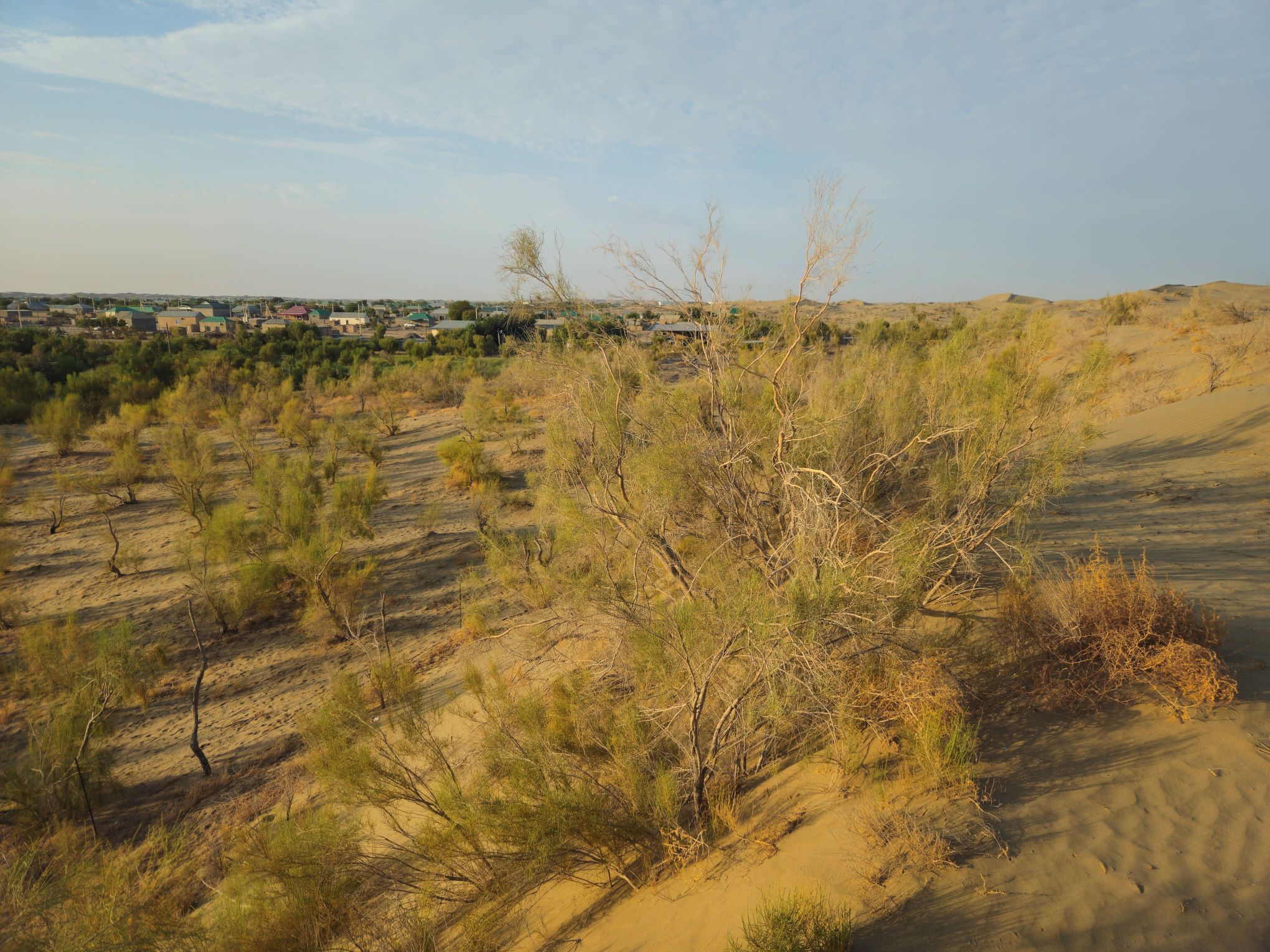Central Karakums, Turkmenistan, 14-17 April 2024 – Experts from the Scientific-Information Center of the Interstate Commission on Sustainable Development (SIC ICSD), within the framework of the joint FAO-SIC ICSD project “Comprehensive Plan for the Restoration of Degraded Desert Rangelands and Their Sustainable Management under Drought Conditions”, took part in field geobotanical studies aimed at assessing the condition of rangelands, their productivity, and the degree of degradation under changing climate conditions. The research covered the territory of the Karrakum research station and the Farmers Association of Yerbent, where key rangeland areas of the region are located.
 FA "Yerbent". Photo by SIC ICSD (A. Matsapaev)
FA "Yerbent". Photo by SIC ICSD (A. Matsapaev)
During the expeditions, SIC ICSD specialists, together with national partners, carried out the establishment of ecological profiles and transects, vegetation surveys and analyses, biomass measurements of forage plants, as well as interviews with local communities. This comprehensive approach made it possible to identify the dynamics of vegetation cover depending on land-use regimes and natural conditions.
The results demonstrated both positive restoration processes in protected areas, including sand stabilization and partial regeneration of woody and semi-shrub vegetation, as well as signs of degradation on lands under economic use, where overgrazing and cutting of black saxaul were observed. Based on the collected data, a rangeland map of the Central Karakums was prepared, and recommendations were developed for their sustainable use.
Particular attention during the research was given to cooperation with shepherds and rangeland users, whose practical knowledge provided valuable insights for clarifying the characteristics of rangeland use.
The spring 2024 field studies confirmed that ensuring sustainable rangeland management is possible only through a combination of scientifically grounded methods of regulating grazing pressure with nature conservation measures and rational organization of watering points. The data obtained will serve as an important foundation for the development of adaptation solutions and the introduction of best practices in sustainable rangeland management under climate change conditions.
The event supports the achievement of:
| Priority Area of REP4SD No 5 dedicated to SDG 15: “Protect, restore and promote sustainable use of terrestrial ecosystems” |
| 5.1.2 capacity-building for sustainable management of forests, land, and pastures. |



